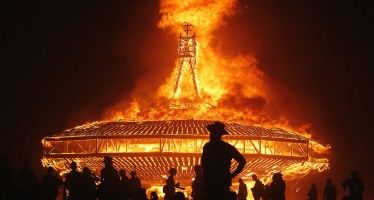CA poised for higher primary profile

Democratic presidential candidate Bernie Sanders (AP Photo/Carolyn Kaster)
Accustomed to languishing at the tail end of the party primary calendar — a dispiriting position for a state that has long been treated as an ATM for East Coast candidates seeking national office — Californians have awoken this year to the prospect of much greater influence on selecting Republican and Democratic presidential nominees.
“It’s totally conceivable that both the Democratic and Republican primaries could stretch on for months,” as the Los Angeles Daily News surmised. “Bernie Sanders and Hillary Clinton are locked in a tight Democratic race that no one imagined a few months ago. And three or four strong GOP candidates in a still-crowded field could easily emerge from the battles of Iowa and New Hampshire as front-runner Donald Trump continues to amaze and confuse most political observers.”
Wild cards
But analysts, keenly aware that the fluid race could also result in a surprise consolidation of the fields, suggested “waiting at least a few weeks before getting too excited,” according to the Daily News.
“By then, we’ll know if Sanders is able to upset Clinton in Iowa and whether Ted Cruz managed to wrest any [more] victories away from Trump ahead of Super Tuesday on March 1, when voters in 11 (12 for Republicans) mostly Southern states will cast ballots.”
Even more importantly, for Republicans, the national GOP jiggered its rules for apportioning delegates in a way that could work to extend uncertainty well into the primary calendar. The Republican National Committee has required all states holding Republican primaries in the first half of March to “award delegates proportionally to candidates who clear a certain threshold,” as the Los Angeles Times reported, “between 5 percent and 20 percent of the vote.” That means that key votes, including all the Super Tuesday primaries, won’t offer campaigning Republicans the chance of scoring any winner-take-all prizes.
“Why is this change so important? Because nearly half the national delegates will be selected during this two-week window. Proportional representation suggests split outcomes in most, if not all, of these key Republican primaries.”
Opinion remains divided, however, on the question of which sort of Republican candidate is most likely to cash in on California’s primary. Some analysts portrayed Golden State Republicans as more likely to advantage candidates mustering a relatively more diverse coalition. “Early voting states like New Hampshire and Iowa get all the fanfare, but their populations are anything but representative of the nation’s diversity,” suggested San Jose State University professor emeritus in the Times. “Republican voters in California — a true cross section of the party’s electorate — will deliver a long overdue reality check of the GOP’s true values.”
But the conservative grassroots, more in tune with the insurgent candidates leading in the early states, has envisioned a different scenario. John Berry, media coordinator for the Redlands Tea Party Patriots, told the Press-Enterprise that party activists could play kingmaker. “We’d get to flex our Tea Party muscle,” he said, putting Donald Trump or Ted Cruz ahead over a “token establishment guy.”
As for California Democrats, a quirk of their state party’s primary rules has upped the stakes for Hillary Clinton’s and Bernie Sanders’ campaigns. As the Sacramento Bee noted, the California Democratic Party, has allowed independent voters to cast votes in its primary for over a decade. “If the heated contest between Secretary of State Hillary Clinton and U.S. Sen. Bernie Sanders of Vermont continues past earlier primary states, California’s independent voters would be a significant target for both Democratic campaigns leading up to June 7,” observed the Bee.
A mixed bag
Californians haven’t always had to worry about bringing up the rear of the parties’ primary seasons. But under Gov. Arnold Schwarzenegger, their experiment with an early debut in the race went awry. “Candidates did come to California, and they did talk about issues pertinent to the state, such as clean energy and immigration. But 33 states moved their primary to Feb. 5 or earlier, weakening California’s influence,” the Press-Enterprise recalled. And shifting the timetable “cost the state $97 million at a time when California’s finances were strained,” the paper added, noting that the state’s presidential primary slipped back to June in 2011.
Related Articles
PG&E Chapter 11 moves ahead – despite criticism over bonuses and board
Pacific Gas & Electric’s decision to file for Chapter 11 bankruptcy in January – coming after three years of deadly,
Burning Man bests perk-hungry regulators
A nerve-wracking negotiation with federal officials has been resolved in favor of the Burning Man festival, saving the organization behind the
Debate on lead ammo ban defies political stereotypes
A bill to ban lead ammunition in California has sparked a heated debate among environmentalists, conservationists, hunters and sportsmen.




